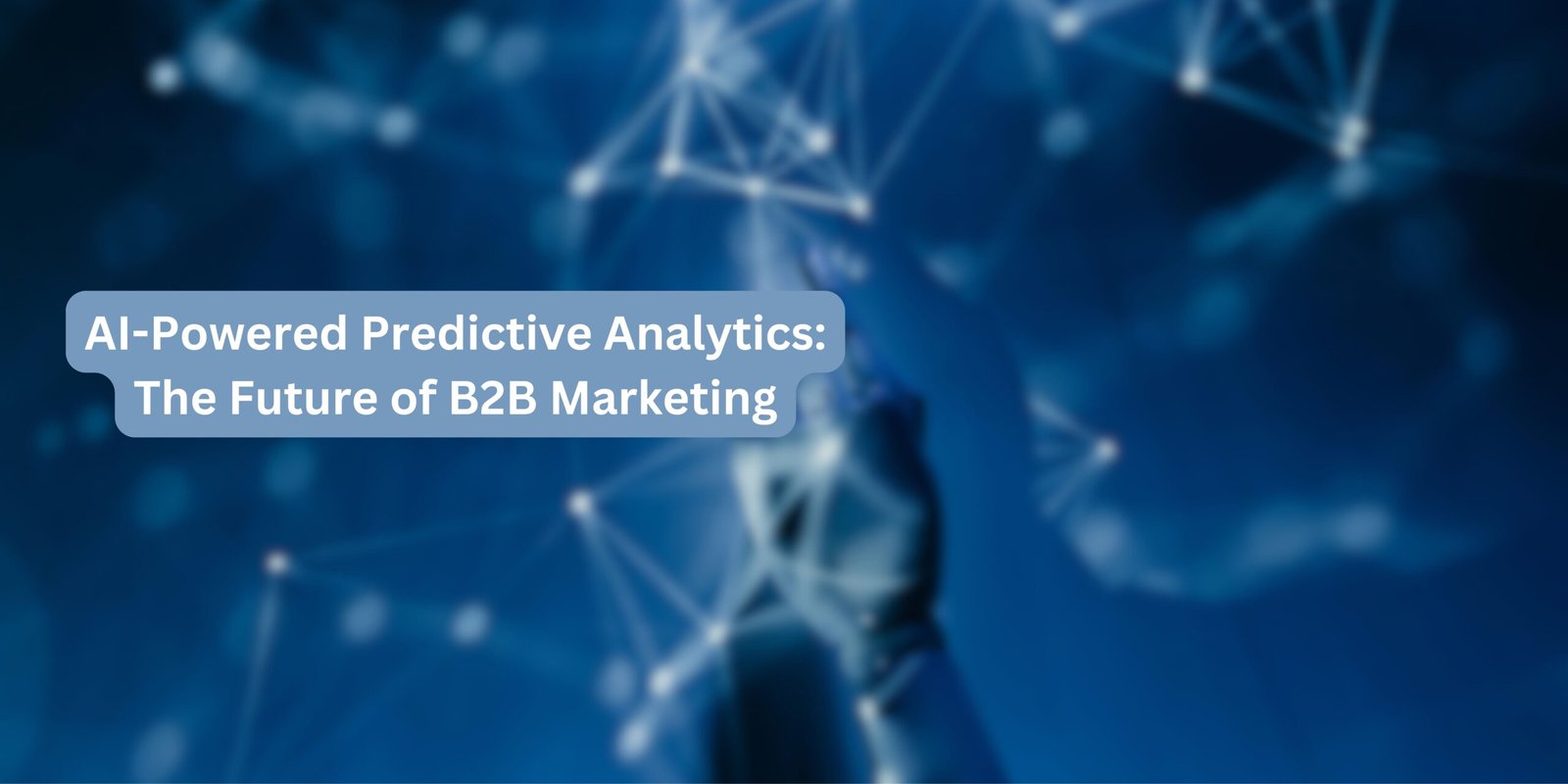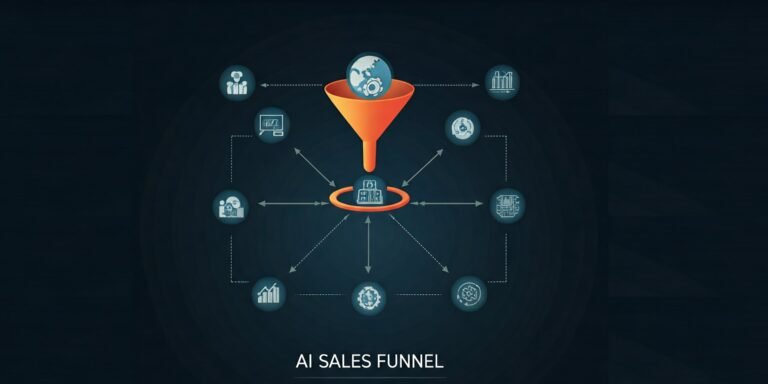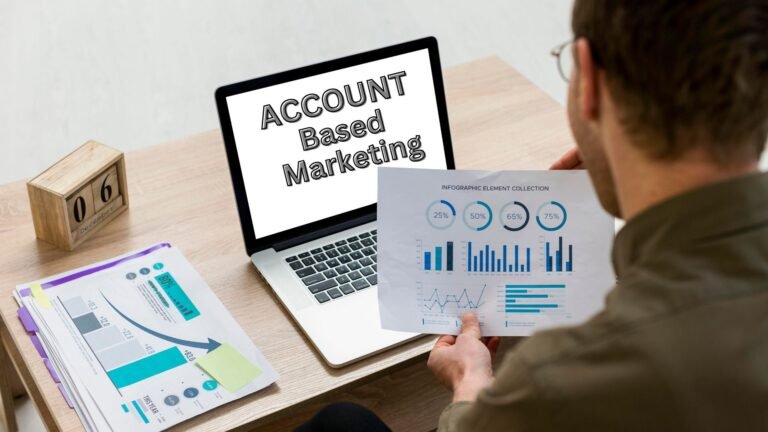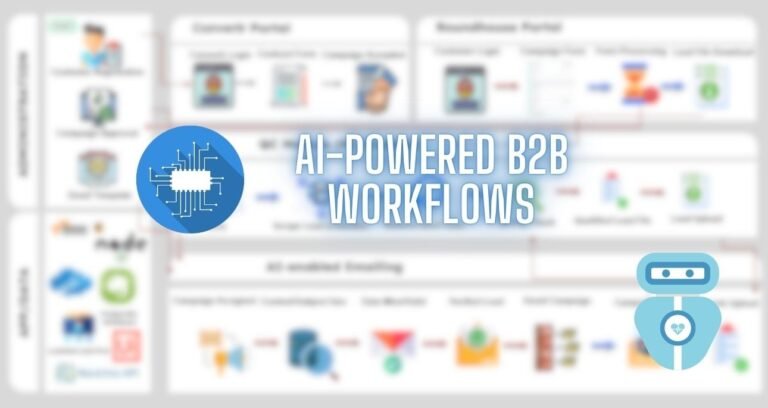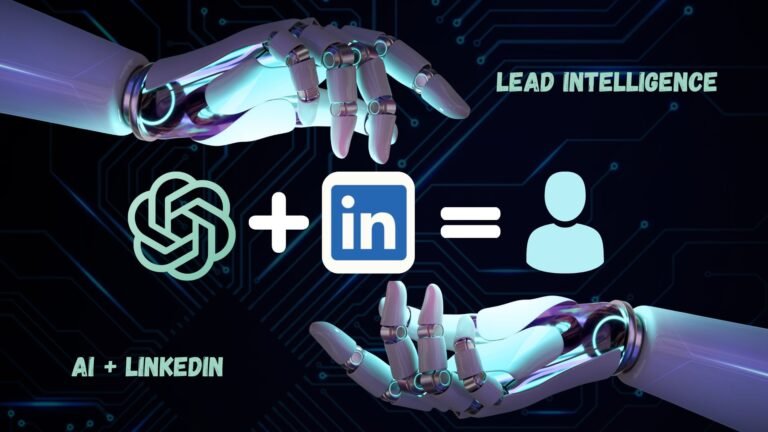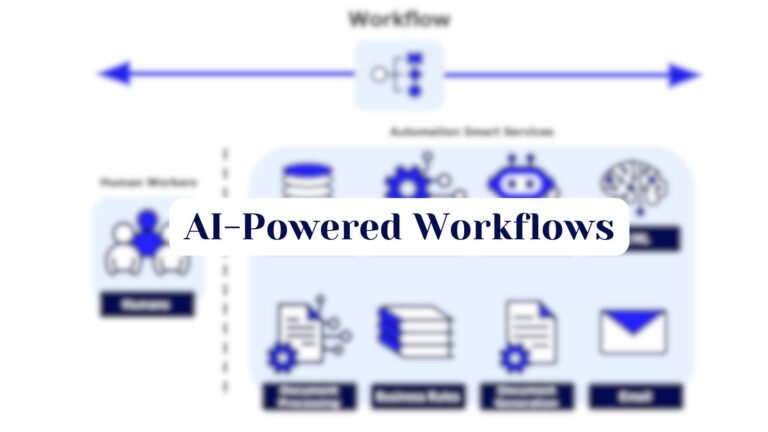AI-Powered Predictive Analytics: The Future of B2B Marketing
In the fast-paced world of B2B marketing, staying ahead of the competition requires more than just traditional strategies. Businesses are now leveraging artificial intelligence (AI) to gain deeper insights, anticipate customer needs, and make data-driven decisions. Among AI applications, predictive analytics stands out as a game-changer, enabling marketers to forecast trends, understand buyer behavior, and optimize campaigns like never before.
What is Predictive Analytics in B2B Marketing?
Predictive analytics uses AI, machine learning, and statistical algorithms to analyze historical data and predict future outcomes. In B2B marketing, it helps identify patterns, assess potential opportunities, and forecast customer behavior. This forward-looking approach empowers businesses to make proactive decisions, optimize their marketing strategies, and maximize ROI.
How Predictive Analytics Transforms B2B Marketing
- Enhanced Lead Scoring
- Traditional lead scoring often relies on static criteria, but predictive analytics takes it to the next level by analyzing vast amounts of data to rank leads based on their likelihood to convert.
- By considering factors such as past interactions, industry trends, and demographic data, businesses can focus on high-potential leads.
- Personalized Campaigns
- Predictive analytics enables hyper-personalization by analyzing customer preferences, behaviors, and purchase histories.
- Marketers can create tailored content and offers that resonate with individual prospects, improving engagement and conversion rates.
- Improved Customer Retention
- By identifying early warning signs of churn, predictive analytics helps businesses take proactive measures to retain customers.
- AI-driven insights allow for timely interventions, such as personalized outreach or exclusive offers, to strengthen relationships.
- Optimized Marketing Spend
- Predictive analytics identifies which channels and strategies deliver the best ROI, allowing businesses to allocate resources more effectively.
- Marketers can focus their budgets on high-performing campaigns, reducing waste and maximizing impact.
- Accurate Sales Forecasting
- AI-powered predictive models provide precise sales forecasts by analyzing historical data, market trends, and buyer behavior.
- This helps sales teams set realistic targets and align their efforts with marketing strategies.
Key Applications of Predictive Analytics in B2B
- Account-Based Marketing (ABM)
- Predictive analytics helps identify high-value accounts by analyzing firmographic, technographic, and behavioral data.
- Marketers can prioritize these accounts and create customized ABM strategies to drive conversions.
- Content Recommendation
- AI-powered tools suggest the most relevant content for each stage of the buyer’s journey.
- This ensures that prospects receive the information they need to make informed decisions, improving the overall experience.
- Demand Forecasting
- Predictive analytics anticipates market demand, helping businesses align their production, inventory, and marketing efforts.
- This reduces risks and ensures that resources are used efficiently.
- Customer Lifetime Value (CLV) Prediction
- By forecasting the long-term value of a customer, predictive analytics enables businesses to prioritize high-value clients.
- This insight informs retention strategies and upselling opportunities.
Benefits of AI-Powered Predictive Analytics
- Increased Efficiency
- Automating data analysis saves time and reduces manual errors, allowing marketers to focus on strategy and creativity.
- Better Decision-Making
- Data-driven insights eliminate guesswork, enabling more informed and confident decisions.
- Competitive Advantage
- Early identification of trends and opportunities helps businesses stay ahead of competitors.
- Higher ROI
- By targeting the right audience with the right message, predictive analytics ensures better campaign performance and higher returns.
Challenges and How to Overcome Them
- Data Quality
- Predictive analytics relies on high-quality data. Businesses must invest in data cleansing and validation processes to ensure accuracy.
- Integration with Existing Systems
- Integrating predictive analytics tools with CRM and marketing platforms can be complex. Choosing compatible solutions and working with experienced teams can simplify the process.
- Interpreting Results
- While AI provides insights, interpreting and applying them effectively requires skilled analysts and marketers.
The Future of Predictive Analytics in B2B
As AI technology evolves, predictive analytics will become even more powerful and accessible. Emerging trends include:
- Real-Time Analytics: Instant insights to adapt campaigns on the fly.
- Voice and Text Analytics: Understanding customer sentiment through natural language processing.
- Deeper Integration: Seamless integration with marketing automation tools for end-to-end campaign optimization.
Conclusion
AI-powered predictive analytics is reshaping the B2B marketing landscape, offering unprecedented opportunities to understand and engage with customers. By leveraging this technology, businesses can enhance lead quality, personalize campaigns, and achieve better results. As the future unfolds, predictive analytics will undoubtedly become an indispensable tool for forward-thinking marketers.
Embracing predictive analytics today is not just a competitive advantage—it’s a necessity for success in tomorrow’s B2B market.


